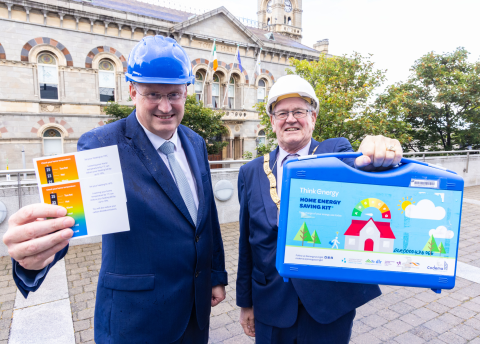Smart sensors on the move in Dún Laoghaire-Rathdown and Fingal
This autumn, Dún Laoghaire-Rathdown County Council and Fingal County Council have joined a European pilot project that transforms everyday public service vehicles—such as waste trucks and buses—into mobile data collectors. Equipped with smart sensors, these vehicles will help detect damaged or missing traffic signs, monitor air quality and allergen levels, and identify road surface defects as they move through the city. The initiative is led by researchers from the FinEst Centre for Smart Cities in Tallinn, who are equipping municipal vehicles with advanced sensor technology. This system enables cities to receive near-instant, hyperlocal data to support smarter urban management.
Mobile sensors offer a cost-effective solution
The city managed vehicles that move throughout the city every day will act as mobile data collectors, processing information with the help of artificial intelligence and sending only key results to a secure cloud environment, where the data is immediately accessible to the city. The advantage of these moving data collectors is that they make use of the existing vehicle fleet, avoiding the need to install costly stationary sensor networks. Project lead Uljana Rensalu from the FinEst Centre for Smart Cities explained that the approach is both innovative and flexible. “By installing mobile sensors on existing vehicles, data collection and processing can be automated without the need for additional vehicles and stationary sensors, which in turn reduces costs. The city can receive continuously updated and reliable information without having to send staff to monitor situations on-site” said Rensalu.
Dublin’s Perspective
Cllr Jim Gildea, Cathaoirleach, Dún Laoghaire-Rathdown County Council and Cllr Tom O’Leary, Mayor of Fingal County Council commented on Dublin’s involvement:
“Equipping Dublin’s public service vehicles with mobile sensors allows us to map air quality and allergen levels at street level in near real time. This means we can identify pollution and pollen hotspots quickly and respond with targeted public health and maintenance actions. The pilot is a collaborative effort with TalTech, Dublin City University, and other local partners, focusing on validating sensor performance and translating findings into community health strategies. Our goal is to explore how this technology can inform future planning and policy.”
A European pilot initiative
This is an experimental project designed to assess how well the new system works in practice. Dublin is not the only city in Europe testing this kind of smart sensing technology — the same system is being used in Tallinn, Estonia and Pula, Croatia. The flexibility of the system allows data from all three cities to be collected and compared.
The implementation of pilot projects is funded by the European Regional Development Fund and the Estonian Ministry of Education and Research through the project “FinEst Targa Linna tippkeskuse piloodiprogramm”.
News
View all
Hawk’s Cliff Swimming Area – Temporary Closure from Mond...

dlr Launches Free Events to Help Households Save on Energy C...





